Grapefruit Seed Extract- a Promising Product
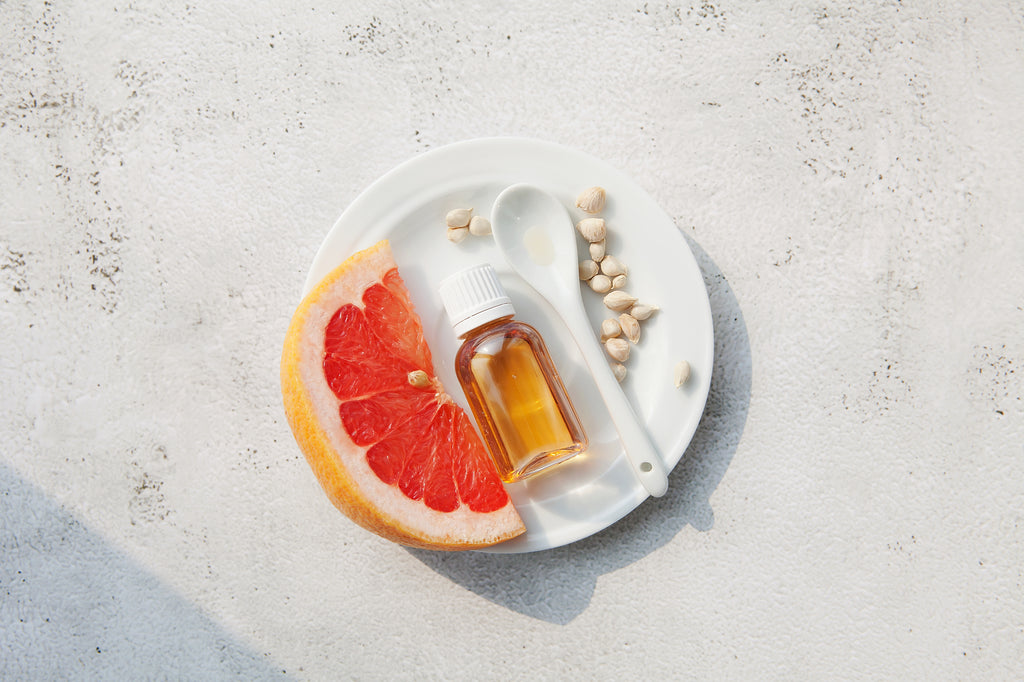
Grapefruit seed extract has been used safely for years as a natural preservative in the food and cosmetics industry because of its ant-microbial and antifungal properties. Those industries have often chosen this product as the most potent of the citrus products, indeed of any natural product, for this purpose. Its properties as a biocide were discovered by American immunologist Jacob Harich in 1980, first for its use as an antifungal against Candida albicans. Since then, its properties as an ant-fungal and antimicrobial has been touted, as a topical treatment for funguses, a nasal and mouth wash for sinus and mouth infections, and internally for Candida and other infections of the gut. There have been some promising studies for these uses, but many haven’t used human trials. More research is definitely needed, but since this is a non-patentable natural product, funding for such research is sparse. Still, research continues, and is being pursued especially in Korea, where there seems to be much interest. Recent research has shown that grapefruit seed extract might have uses against antibiotic resistant S. Aureus and on biofilms. Either would be remarkable, and hopeful, since these are both real problems, being very difficult to affect- any progress on either front would be welcome. Let’s take a look at the uses for grapefruit seed extract and what research exists. Certainly a number of practitioners and patients have found some uses for the product.
Topical and lavage uses against bacteria
Grapefruit seed oil has been used topically to treat fungus conditions like toenail fungus, athletes foot, and jock itch. It’s also been used topically and as a rinse (lavage) for infection treatment in wound care, and as a mouth rinse or nasal spray as a replacement for antibiotics. Since grapefruit seed oil comes as capsules, tablets, as droplets, or a liquid concentrate, the concentrate can be used topically. The tablets have additional immune supporting herbal additions, and the droplets are a combination of citrus oils, but both the capsules and concentrate rely on grapefruit seed oil alone as an active ingredient. How does grapefruit seed extract work topically? As an antibiotic, this study explains its mechanisms:
“The initial data shows GSE (grapefruit seed extract) to have antimicrobial properties against a wide range of gram-negative and gram-positive organisms at dilutions found to be safe. With the aid of scanning transmission electron microscopy (STEM), the mechanism of GSE's antibacterial activity was revealed. It was evident that GSE disrupts the bacterial membrane and liberates the cytoplasmic contents within 15 minutes after contact even at more dilute concentrations.” (Heggers, et al, 2002).
In addition to general wound care, there have been exciting hints at the fact that grapefruit seed extract might be effective against multidrug resistant bacteria, specifically Staphylococcus aureus. This particular strain of Staph is particularly dangerous, and we’ve written recently about it in terms of diabetic induced wounds. It’s becoming both more common, and more resistant, and when even the most powerful antibiotics struggle against it, we should be glad that there may be other natural antibiotics that might be proven to be effective. There are a number of Korean studies on grapefruit seed extract, and some that deal with just this question. A study by Han, et al, in 2021 found that: “GSE showed antibacterial activity against MSSA, MRSA, and VRSA in disk diffusion and microdilution MIC tests”. The authors of the study stressed that although this research was preliminary, grapefruit seed extract “exerts favorable antimicrobial activity against not only MSSA but also MDR bacteria, it can be a valuable natural substance for preventing or reducing nosocomial infection, and further analysis is likely to be needed” This study, and many other Korean studies on the subject are funded by the Korean government and universities, and not by private industry. The clear demonstration of grapefruit seed extract’s ability to exhibit antimicrobial properties in a petri dish, even against resistant bacteria, means that it should be useful for wound care. Hopefully, further studies will continue to validate this.
Like fungi, as discussed next, some bacteria are able to spread rapidly and are more difficult to eradicate by the means of forming biofilms. Both Staphylococcus aureus and Escherichia coli can be difficult to treat because they can form biofilms and because there are multidrug resistant strains of both in circulation. S. aureus has already been discussed, and E. coli is probably familiar to you as the source of many foodborne outbreaks. Another Korean study, this one by Song, et al, in 2019, investigated the use of grapefruit seed extract in inhibiting the development of both of those bacteria on surfaces. Their conclusions were: “…our results suggest that GSE might be used as an anti-biofilm agent that is effective against S. aureus and E. coli.” The authors also noted that grapefruit seed extract has been used safely for years in the food industry. Grapefruit seed extract could be an important component of the fight against food borne illness when used to wipe down surfaces.
Topical and lavage uses against fungus
One of the more common ways that grapefruit seed extract has been used is to treat surface infections caused by fungus, either of the skin or nails. A Polish study in 2001 found that grapefruit seed extract was effective against Candida albicans. This fungus is the most common culprit in many skin infections. Those who are obese, diabetic, take antibiotics or steroids, or are undergoing chemotherapy are even more likely to have Candida skin infections. Candida can also infect the nails, and the corners of the mouth. Candida infections also occur as oral thrush in people who have taken antibiotics or who have weakened immune systems. It’s also the most frequent cause of vaginal yeast infections. Fungal mouth infections are usually caused by Candida, and it is the most common cause of infections resulting from dentures. Fungal infections are often very difficult to control because of the unique way they have to protect themselves. Fungus, including the various Candida strains, can develop as a thin sticky layer that adheres strongly to damp areas and is harder for antifungals to penetrate. This is called a biofilm. These biofilms can cause fungal cells to spread rapidly and be difficult to remove, particularly from an item like dentures. These same biofilms can exist on human tissue and be difficult to penetrate. One of the reasons that grapefruit seed extract is so successful at combating Candida infections is its ability to destroy biofilms. Two recent studies examined this effect. The first study by Tsutsumi-Arai, et al, in 2019 focused on dentures. After studying grapefruit seed extract compared to physically cleaning dentures, or using a chemical soaking solution, the study found grapefruit seed extract vastly superior and concluded:
“The results of the present study strongly suggest that GSE can be very useful for the disinfection of denture surfaces. Our data also suggest that a denture treated with GSE for 5 min has the potential to have a persistent inhibitory effect on the biofilm development of C. albicans. In addition, immersion in the solution containing GSE does not cause surface deterioration of denture-base resin. Therefore, GSE has great potential as a new component of denture cleanser.”
Which means, not only did grapefruit seed extract quickly kill the Candida, but it seemed to have the effect of preventing more Candida from growing on the dentures for some time. Another study by the same authors in 2021 that compared the effectiveness of grapefruit seed extract versus the potent antifungal drug miconazole when addressing candida infections of the gums, found:
“GSE demonstrated a fungicidal effect against all tested Candida species, whereas miconazole demonstrated a fungicidal effect against only C. albicans.” and “The histopathological observation in the oral mucosa treated with GSE showed no significant histopathological changes. Taken together, GSE has a fungicidal activity against C. albicans, C. glabrata, C. tropicalis, and C. parapsilosis, and no adverse effects were observed in vitro and in vivo.”
The study was meant to both test the safety and effectiveness when grapefruit seed extract was used orally against Candida caused mouth and gum infections, and found both that it was effective and that there were no side effects either in a petri dish or in the body of the animals tested. It certainly seems that grapefruit seed extract may have a role to play against fungal infections, particularly those caused by Candida, whether orally or dermatologically.
Internal and other possible uses
What do we know about possible internal uses for grapefruit seed extract? Unfortunately, not enough studies have been done on the subject. Many studies have been done in vitro (in a lab setting, like a petri dish), but few in vivo (in the body), although some of the studies cited above have included animal studies both for safety and for effectiveness as a natural antibiotic. Grapefruit seed extract has been used safely for years by the food industry as a natural preservative, and was tested as safe in the dental studies cited above. Its effectiveness against candida has also been noted in multiple studies, and some think that will translate to its effectiveness against candida infections in the gut as well. One study in rats by Arie, et al, in 2019 that examined its possible effectiveness against IBS (irritable bowel syndrome) found that grapefruit seed extract appeared to decrease the frequency of IBS in the rats, decreased the permeability of the gut, and decreased inflammation due to cytokines. The study concluded “GSE may be useful for treating IBS.” One study that did include human trials examined eczema sufferers that had IBS associated with their condition and found that grapefruit seed extract capsules were effective against candida and E. coli in the gut and that “No side-effects were registered during the whole study. Clinically, a definite improvement of constipation, flatulence, abdominal discomfort and night rest was noticed after 4 weeks”. Another preliminary study found it effective in helping to eliminate H pylori, the cause of up to 80% of stomach ulcers, while a different study found that it had gastroprotective effects against stomach ulcers. Another study found that grapefruit seed extract could have utility against urinary tract infections. A Korean study has even investigated grapefruit seed extract as an application for air filters in buildings for its antifungal and antimicrobial effects and found it to have some efficacy for that purpose. It’s clear that grapefruit seed extract is a potent antifungal and antimicrobial natural product. As studies continue, we shall hopefully see confirmed what many already suspect- that grapefruit seed extract has a place in the pharmacopeia.
*By including product links in this article, Progressive Nutracare is providing a reference to our readers to assist in searching and cataloging the site. These products have not been evaluated by the F.D.A. are not intended to treat, diagnose, cure, or prevent disease.
- Tags: Article Gastrointestinal Immune
- Robert Thomas

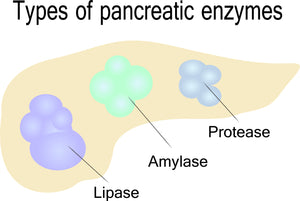

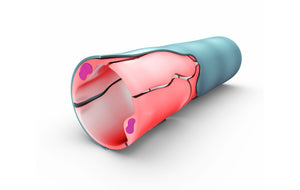
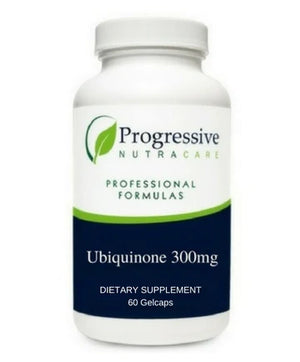

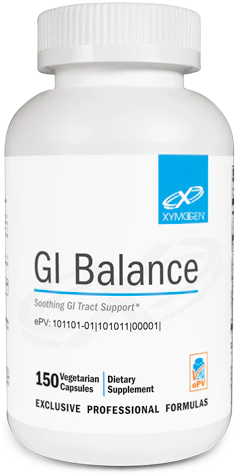
Comments 0